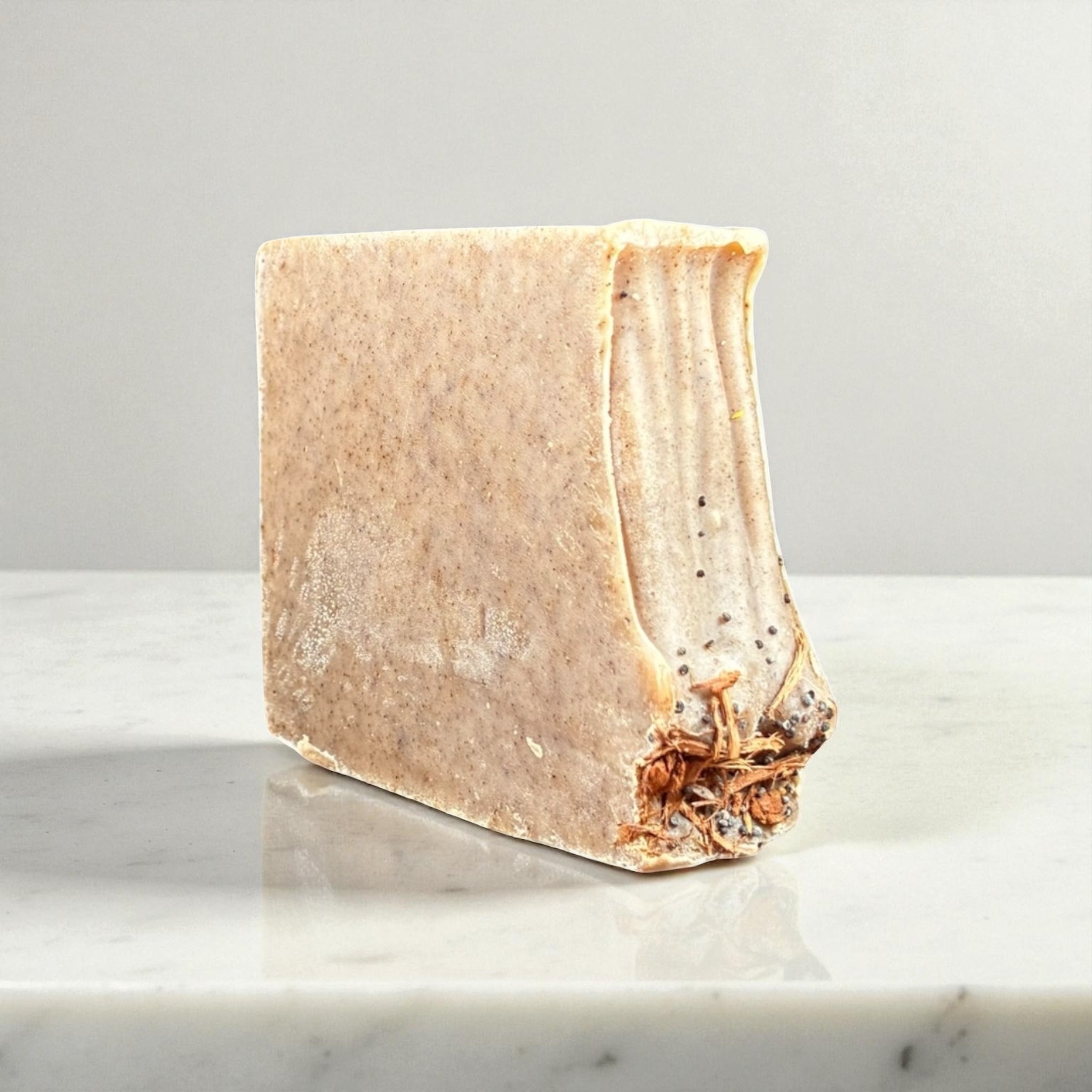
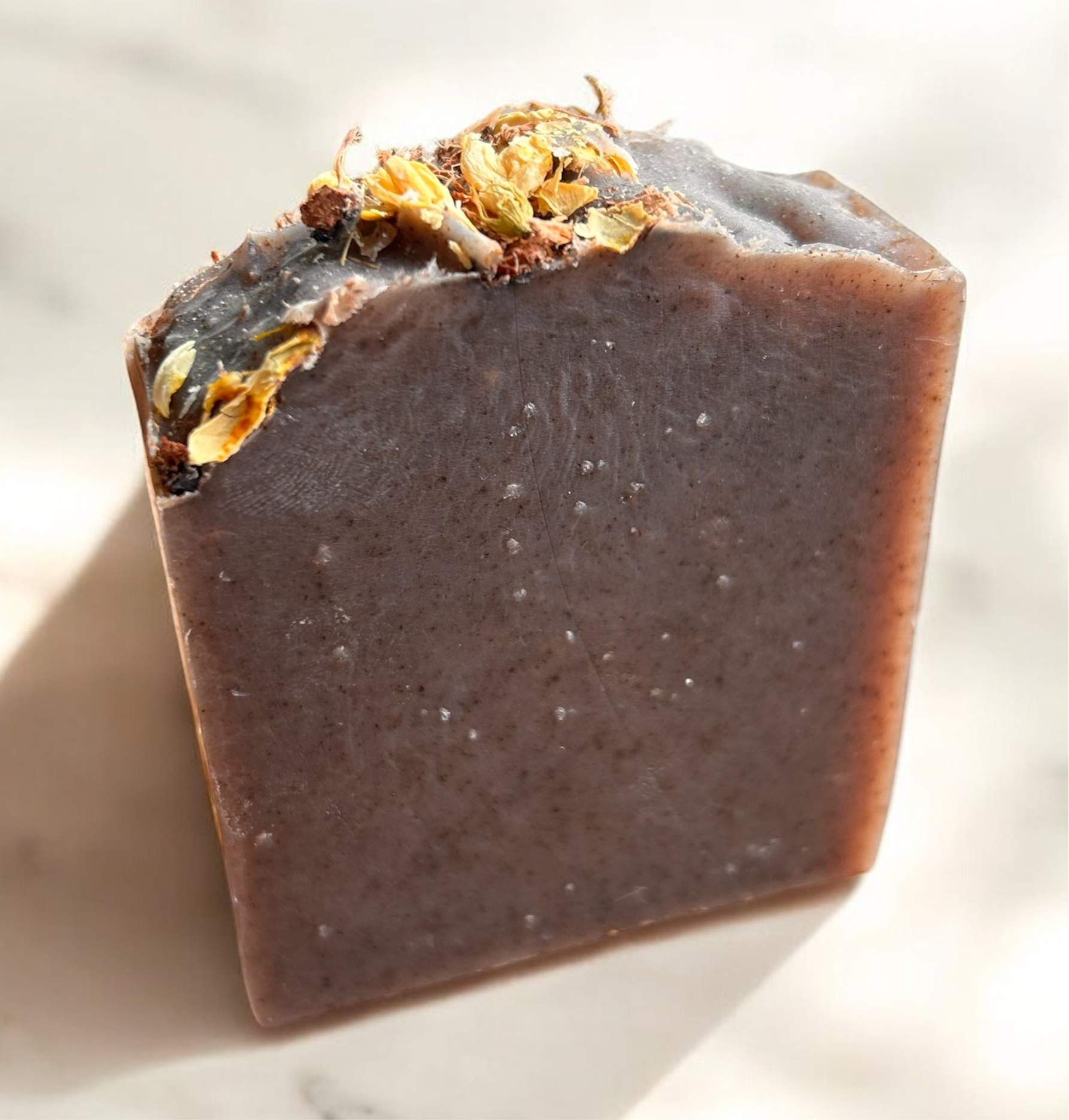
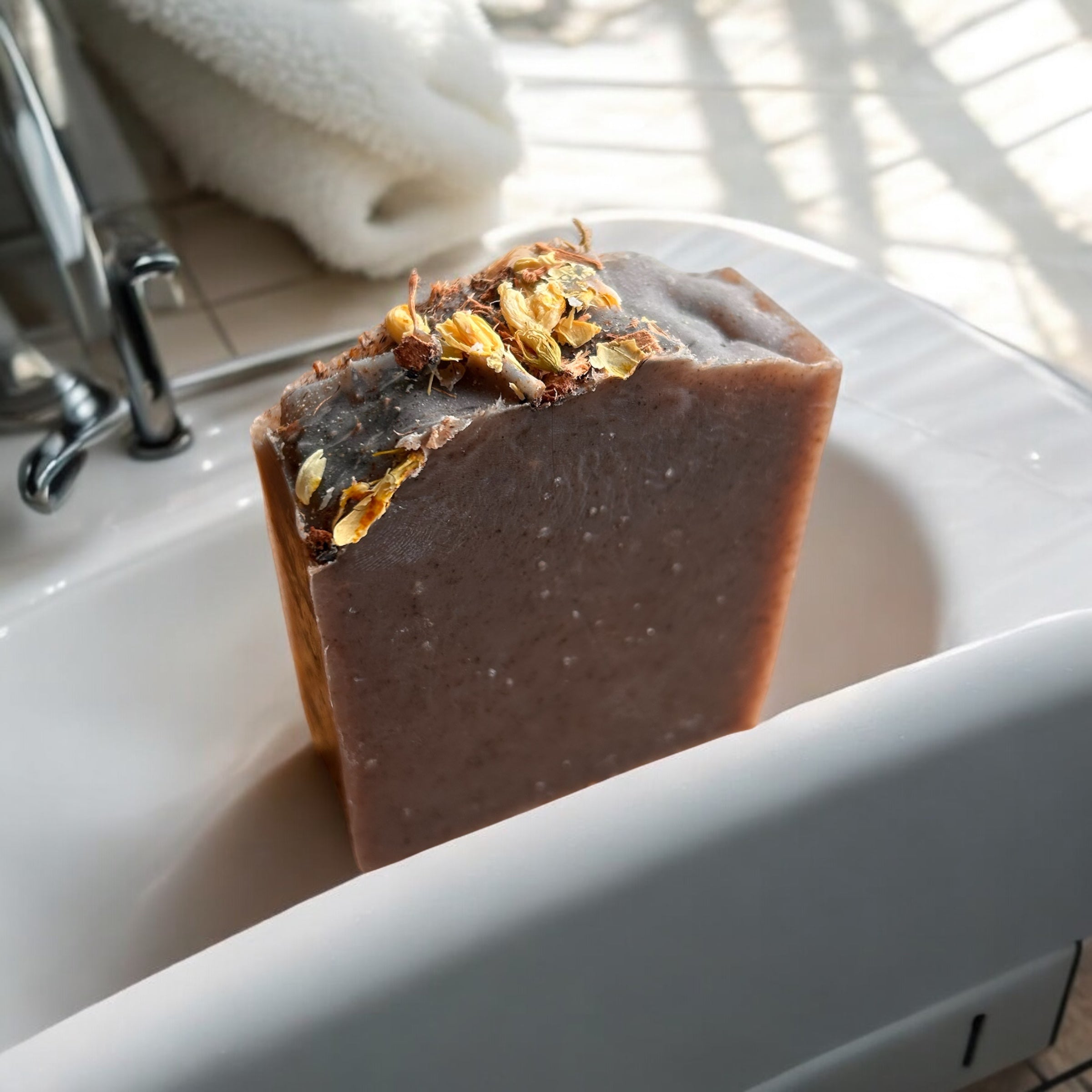
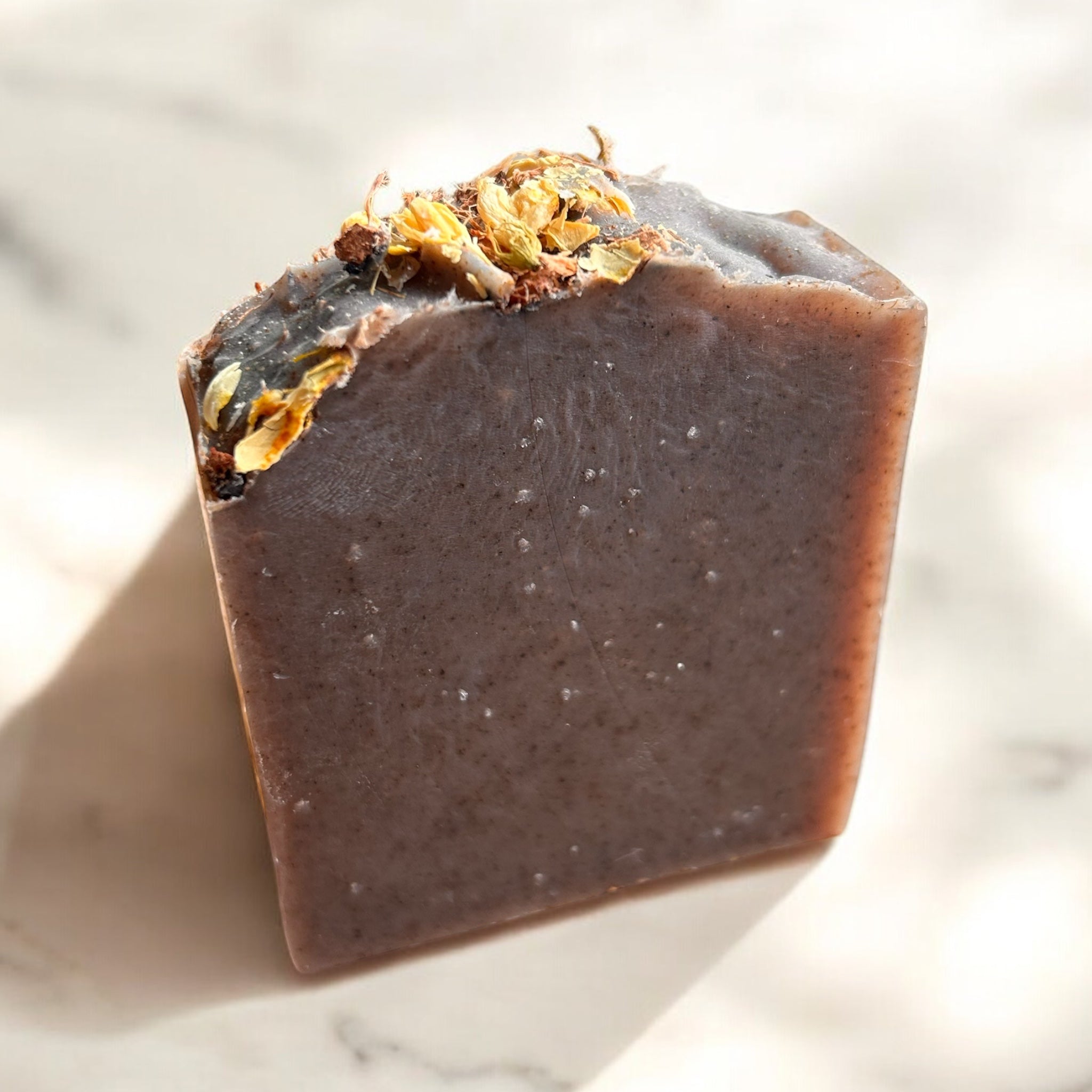
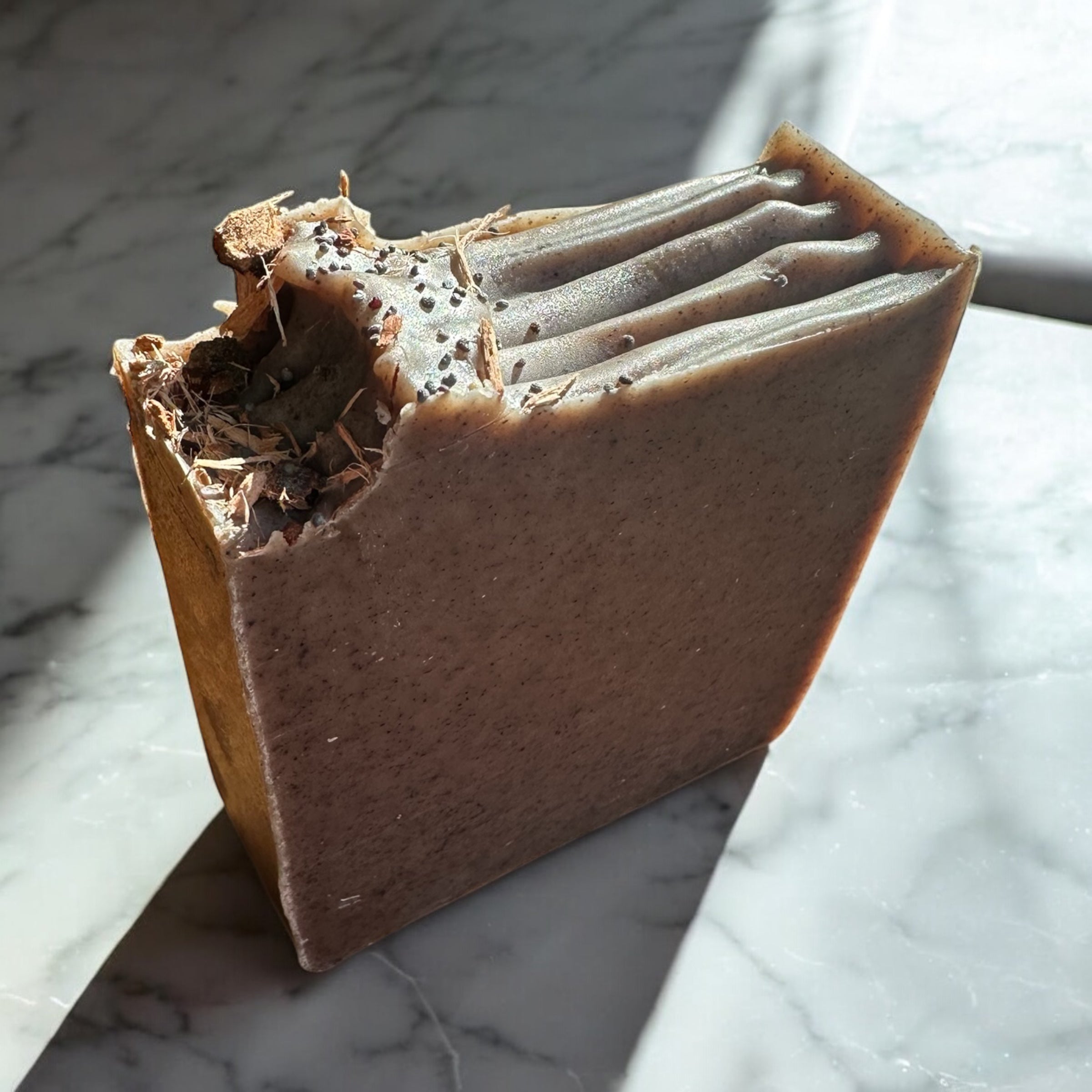
Goat Milk Soap: The Ultimate Guide to Skincare
If you’ve ever felt frustrated by harsh commercial soaps that leave your skin dry, tight, and irritated, you’re not alone. Many people struggle with conventional body wash and bar soap products that strip away natural oils and disrupt the delicate balance of healthy skin. The solution might be more straightforward than you think: goat milk soap.
This gentle soap has been gaining recognition among dermatologists and skincare enthusiasts for its remarkable ability to cleanse without compromising the skin’s natural barrier. Unlike synthetic alternatives packed with harsh chemicals, goat milk soap offers a return to traditional, nourishing skincare that actually works with your skin rather than against it.
In this comprehensive guide, we’ll explore everything you need to know about goat milk soap, from its unique composition to its proven benefits for every skin type. Whether you’re dealing with sensitive skin, acne, dryness, or want a healthier alternative for your family, this guide will help you understand why goat milk soap might be the missing piece in your skincare routine.
What is Goat Milk Soap
Goat milk soap represents a return to traditional soapmaking, combining fresh goat milk with natural plant-based oils through a time-tested saponification process. Unlike mass-produced soaps that rely on synthetic detergents and harsh chemicals, this gentle soap harnesses the natural properties of goat milk to create a product that cleanses while nourishing the skin.
The composition of high-quality goat milk soap typically includes 20-30% fresh goat milk, blended with natural oils such as coconut oil, olive oil, and sustainable palm oil. This combination creates a rich, creamy lather that feels luxurious while delivering profound skincare benefits. Customers have reported being particularly happy with the creamy lather and pleasant scent of goat milk soap. Goat milk soap is packed with vitamins, minerals, and fatty acids that soothe and moisturize dry, itchy skin.
Key Components That Make the Difference
What sets goat milk soap apart from regular soap is its impressive nutrient profile. The milk contains lactic acid, a natural alpha-hydroxy acid that provides gentle exfoliation by breaking down the bonds between dead skin cells. This process reveals smoother, more radiant skin without the harsh scrubbing action of synthetic exfoliants.
The vitamin content is equally impressive, featuring vitamins A, D, E, K, C, and various B vitamins. Vitamin E acts as a powerful antioxidant, while vitamin A supports skin renewal and can help improve skin tone over time. The presence of fatty acids, including caprylic and linoleic acids, mirrors components found naturally in human skin, making this soap particularly compatible with our skin’s biology. Goat milk soap hydrates and softens the skin, potentially diminishing the appearance of fine lines and wrinkles.
Natural pH Balance for Skin Compatibility
One of the most significant advantages of goat milk soap is its natural pH level of 5.5-6.5, which closely matches your skin’s pH. This compatibility helps maintain the skin’s protective acid mantle and supports the healthy microbiome that protects against harmful bacteria and environmental stressors.
Commercial soaps often have a pH of 9-10, which can disrupt this delicate balance and leave skin vulnerable to irritation and infection. By choosing goat milk soap, you’re working with your skin’s natural chemistry rather than fighting against it.
Benefits of Goat Milk Soap for Your Skin
The benefits of using goat milk soap extend far beyond basic cleansing. This nourishing goat milk product offers a comprehensive approach to skin health that addresses multiple concerns simultaneously. Its popularity is evident, with goat milk soap receiving over 25,000 5-star reviews from satisfied customers.
Deep Moisturizing Properties
The natural fatty acids and proteins in goat milk create an exceptional moisturizing experience. These components help prevent transepidermal water loss, which is the primary cause of dry skin and that tight feeling you get after washing with harsh soaps. The result is skin that feels soft and hydrated rather than stripped and uncomfortable.
The emollient properties of goat milk soap are particularly noticeable on areas prone to dryness, such as the legs, elbows, and hands. Regular use can help reduce the need for additional moisturizers, as the soap itself provides significant hydration.
Gentle Exfoliation Through Natural Lactic Acid
The lactic acid naturally present in goat milk provides gentle exfoliation that removes dead skin cells without causing micro-tears or irritation. This process promotes cellular turnover, helping to reveal fresher, more radiant skin over time. Unlike harsh scrubs or chemical peels, this gentle exfoliation happens during your regular cleansing routine.
This natural exfoliation process also helps clear pores and reduce the appearance of rough patches or flakiness, making it particularly beneficial for those dealing with uneven skin texture.
Anti-Inflammatory Properties for Problem Skin
Goat milk contains anti-inflammatory proteins and micronutrients that can help soothe irritated skin and reduce redness. These properties make it especially valuable for people dealing with inflammatory skin conditions or those who experience irritation from environmental factors or other skincare products.
The soothing nature of goat milk soap can provide relief for various skin concerns while supporting the skin’s natural healing processes. This makes it an excellent choice for individuals experiencing occasional skin sensitivity or chronic inflammatory conditions.
Supporting Healthy Skin Barrier Function
Perhaps most importantly, goat milk soap helps maintain and restore the skin’s natural barrier function. This barrier is crucial for protecting against environmental damage, retaining moisture, and keeping the skin’s microbiome balance. By supporting this barrier rather than disrupting it, goat milk soap promotes long-term skin health.
Goat Milk Soap for Different Skin Types
One of the remarkable aspects of goat milk soap is its versatility across different skin types. While many skincare products effectively address a specific concern, high-quality goat milk soaps can benefit virtually everyone, although the particular advantages may vary.
Sensitive Skin
For those with sensitive skin, finding the right cleanser can feel like an impossible task. Conventional soaps often contain fragrances, dyes, and harsh chemicals that trigger reactions, leaving sensitive skin red, itchy, or inflamed. Goat milk soap offers a gentler alternative that cleanses effectively without irritating.
The hypoallergenic properties of unscented goat milk soap make it an ideal choice for individuals with conditions such as eczema, rosacea, and dermatitis. The natural pH balance helps prevent disruption of the skin barrier, which often triggers flare-ups in these conditions.
Many people with bad eczema find that switching to goat milk soap reduces the frequency and severity of their symptoms. The gentle formulation respects the skin’s natural defenses while providing the cleansing action needed for daily hygiene.
The absence of synthetic fragrances and harsh chemicals in quality goat milk soap means that even the most reactive skin types can often tolerate it well. For those who must avoid essential oils entirely, unscented varieties provide all the benefits of goat milk without any potentially irritating additives.
Acne-Prone Skin
Contrary to what many people believe, individuals with acne-prone skin can significantly benefit from goat milk soap. The key is understanding that acne isn’t always caused by excess oil production – often, it’s the result of using products that are too harsh and disrupt the skin’s natural balance.
Goat milk soap exhibits natural antibacterial properties against common acne-causing bacteria, including Staphylococcus aureus and Streptococcus pyogenes. The gentle exfoliation from lactic acid helps unclog pores without the aggressive action of harsh scrubs that can actually worsen acne by causing micro-injuries to the skin.
For enhanced acne-fighting benefits, some goat milk soaps incorporate tea tree essential oil, which provides additional antimicrobial and anti-inflammatory effects. However, even plain goat milk soap can help balance oil production while maintaining the moisture that healthy skin needs.
The critical thing to remember is that goat milk soap won’t over-dry the skin, unlike many acne treatments. This balanced approach often leads to clearer skin over time as the skin’s natural defenses are supported rather than compromised.
Dry Skin
People with dry skin often struggle to find cleansers that don’t exacerbate their condition. Traditional soaps can strip away the skin’s natural oils, leaving already dry skin feeling tight and uncomfortable. Goat milk soap takes the opposite approach, providing deep hydration while cleansing.
The abundance of fatty acids, cholesterol, and natural humectants in goat milk works together to create a moisture-retentive barrier on the skin. This barrier helps prevent water loss throughout the day, reducing the tight, flaky feeling that characterizes dry skin. A testimonial even highlighted that goat milk soap dramatically improved a user's skin after just one bath, showcasing its immediate benefits.
The nourishing oils commonly used in goat milk soap formulations, such as coconut oil and olive oil, provide additional moisturizing benefits. These oils are chosen not just for their soap-making properties but for their ability to nourish and protect the skin.
Regular use of goat milk soap can actually improve the skin’s ability to retain moisture over time, potentially reducing the need for heavy moisturizers or frequent reapplication of hand cream throughout the day.
Baby Skin
Parents seeking gentle, safe products for their babies often turn to goat milk soap, and for good reason. Baby skin is more delicate and permeable than adult skin, making it more susceptible to irritation from harsh chemicals and fragrances found in many commercial products.
Castile goat milk soaps, which are primarily made with olive oil, represent the gentlest soap formulations available. These ultra-mild products are specifically designed for the most sensitive skin, including newborns and infants.
Goat milk soap can be beneficial for common baby skin issues, such as cradle cap and diaper rash. The gentle cleansing action removes buildup without irritating already sensitive areas, while the moisturizing properties help soothe and protect delicate skin.
Many pediatric dermatologists recommend goat milk soap for families dealing with infant eczema or other skin sensitivities. The natural, gentle formulation provides effective cleansing without the risk of triggering reactions that can occur with synthetic products.
How to Use Goat Milk Soap
To get the most benefit from your goat milk soap, it's essential to understand proper application techniques and the recommended usage frequency. While it’s gentler than conventional soaps, the adequate technique ensures you maximize its benefits while maintaining the soap’s longevity.
Face Cleansing Technique
For facial cleansing, start by wetting your face with lukewarm water – hot water can strip natural oils and irritate the skin. Gently massage the goat milk bar soap in your hands to create a creamy lather, then apply this lather to your face using circular motions. Adding a few handfuls of goat milk bath to a warm tub can help the skin absorb nutrients effectively.
Focus on areas where oil and impurities tend to accumulate, such as the T-zone, but avoid aggressive scrubbing. The lactic acid in the soap provides gentle exfoliation, so mechanical action should be minimal. Rinse thoroughly with lukewarm water and pat dry with a clean towel.
Body Washing Applications
For body use, apply the soap directly to wet skin or use a washcloth for added lather. The rich, creamy lather that goat milk soap produces makes it easy to cleanse large areas efficiently. Pay special attention to areas prone to dryness, such as elbows, knees, and legs, where the moisturizing benefits are most noticeable. Goat milk soap can be used on both hands and body, and trying different bars is recommended for variety.
The gentle nature of goat milk soap makes it suitable for daily use on the body, unlike some harsh cleansers that should be used less frequently. Many users have successfully used body bars and moisturizers on their face, so it's essential to listen to your skin to determine what works best.
Hair and Scalp Care
Some goat milk soaps are formulated specifically as shampoo bars, offering a natural alternative to conventional hair products. When using goat milk soap on your hair, wet it thoroughly and either create a lather in your hands or apply the bar directly to the scalp.
The gentle cleansing action can help with scalp conditions while the moisturizing properties prevent the dryness that sometimes occurs with harsh shampoos. However, those with very oily hair might need to experiment with frequency to find the right balance.
Usage Frequency Guidelines
For most skin types, daily use of goat milk soap is not only safe but beneficial. However, those with extremely sensitive skin or active skin conditions might want to start with every other day to assess their skin’s response. Users should consult with their dermatologist or healthcare professional before trying new skincare products, including goat milk soap.
People with dehydrated skin often find that they can use goat milk soap daily without needing additional moisturizers. In contrast, those with oily skin may benefit from using it twice daily during breakouts.
Storage and Longevity Tips
Proper storage significantly extends the life of your goat milk bar soap. After each use, place the bar in a well-ventilated soap dish that allows air circulation and drainage. Avoid leaving the soap in standing water or humid environments, as this can cause it to become mushy and reduce its lifespan.
A well-made goat milk soap, when stored,properly, can last 4-6 weeks with daily use, making it an economical choice for natural skincare.
Key Ingredients in Quality Goat Milk Soap
Understanding what goes into quality goat milk soap helps you make informed choices and avoid products that may not deliver the promised benefits. Not all goat milk soaps are created equal, and the ingredient list tells the real story of what you’re putting on your skin. Beekman 1802's bar soaps are crafted in the USA and made from goat milk sourced from family-owned farms.
Fresh Goat Milk Content
The star ingredient should be fresh goat milk, typically comprising 20-30% of the total formulation. Quality producers will clearly state the milk content and source. Some mass-produced soaps use powdered milk or minimal amounts of goat milk, significantly reducing the potential benefits.
Fresh goat milk from local farms often provides the highest nutrient content, as the milk hasn’t been processed or stored for extended periods. Many artisan soap makers highlight their relationships with local goat farms, ensuring the milk is fresh and the goats are well-cared for.
Natural Base Oils
The foundation of any good soap lies in its base oils, and goat milk soap typically uses a blend of beneficial plant oils. Coconut oil provides rich lather and cleansing properties, while olive oil adds conditioning and moisturizing benefits. Sustainable palm oil contributes to the bar’s hardness and creates the creamy lather that makes goat milk soap so pleasant to use.
Some premium formulations also include specialty oils, such as avocado oil for its extra moisturizing properties or castor oil for additional lather stability. These oils work synergistically with the goat milk to create a superior cleansing experience.
Saponification Ingredients
Quality goat milk soap contains sodium palmate and sodium cocoate, which are the saponified forms of palm oil and coconut oil, respectively. These ingredients, along with small amounts of sodium chloride (salt), help create the proper texture and lather quality that makes the soap effective and pleasant to use.
Understanding these technical names helps you identify genuine soap versus detergent-based cleansers that might market themselves as soap but lack the actual benefits of traditional soap-making.
Beneficial Additives
Many goat milk soaps include beneficial additives that enhance their properties. Honey is a popular addition that provides additional moisturizing and antimicrobial benefits. Oatmeal offers gentle physical exfoliation and soothing properties for irritated skin.
Essential oils, such as lavender, provide aromatherapeutic benefits and additional skin-soothing properties, while tea tree oil offers antimicrobial benefits for acne-prone skin. Eucalyptus can provide a refreshing scent and potential respiratory benefits during use.
Some specialty formulations include vitamin C for its antioxidant benefits, activated charcoal for its detoxifying properties, or additional moisturizing agents like shea butter for extra support on dry skin.
Ingredients to Avoid
Quality goat milk soap should be free from parabens, phthalates, sulfates, and synthetic colorants. These additives can irritate and may pose health concerns with long-term use. The absence of these chemicals is significant for people with sensitive skin or those seeking truly natural products.
Artificial fragrances should also be avoided, especially in products intended for sensitive skin. Natural scents from essential oils or unscented formulations are safer choices for most people.
Making vs. Buying Goat Milk Soap
When considering goat milk soap, you’ll encounter both handcrafted artisan products and mass-produced commercial versions. Understanding the differences helps you make the best choice for your needs and budget.
The Cold Process Advantage
Most high-quality goat milk soap is made using the cold process method, which preserves the delicate nutrients and bioactive compounds in the milk. This traditional approach maintains lower temperatures throughout the soap-making process, ensuring that heat-sensitive vitamins and proteins remain intact.
Artisan soap makers who use the cold process method typically produce their soaps in small batches, allowing for greater attention to detail and quality control. This approach contrasts sharply with industrial soap production, where high temperatures and mass production can compromise the beneficial properties of the ingredients.
Artisan vs. Commercial Production
Handcrafted goat milk soaps often feature complete ingredient transparency, with makers taking pride in sharing their formulations and sourcing practices. These products are typically crafted by individuals passionate about natural skincare, who possess a deep understanding of soap chemistry and the importance of high-quality ingredients.
Commercial producers, while able to offer lower prices, often compromise on ingredient quality or milk content to maintain profit margins. Some use minimal amounts of goat milk or substitute powdered milk for fresh, significantly reducing the potential benefits.
The curing process also differs significantly. Quality artisan soaps are cured for a minimum of 6 weeks, allowing the saponification process to complete fully and creating a harder, longer-lasting bar. Mass-produced soaps often skip or shorten this crucial step.
Quality Indicators to Look For
When evaluating goat milk soap, look for products that clearly state the percentage of goat milk used and the curing time. Reputable makers will provide information about their goat milk sources and soap-making process.
The ingredient list should be straightforward and recognizable, with goat milk listed prominently. Be wary of products with lengthy lists of synthetic additives or those that list goat milk far down in the ingredient list, indicating minimal content.
Color can also be an indicator – natural goat milk soap typically has a creamy, off-white color. Bright white soap may indicate the use of artificial whiteners or minimal milk content, while overly colored soaps may contain artificial dyes.
Cost Considerations
Artisan goat milk soap typically costs between $5 and $10 per bar, which may seem expensive compared to commercial alternatives. However, the cost per use is often comparable or even lower, as quality soap lasts longer and requires less product for effective cleansing.
The superior ingredients and benefits often make the investment worthwhile, especially for people with sensitive skin who might otherwise need to purchase multiple specialized products. When you factor in the potential reduction in moisturizers, treatments, and other skincare products, quality goat milk soap can actually be economical. Customers have also noted that the products arrive quickly, as shown, which reflects a good delivery service.
Many people find that investing in quality goat milk soap pays off in improved skin health and a reduced need for other products, making it a cost-effective choice for long-term skincare.
Popular Goat Milk Soap Varieties
The world of goat milk soap offers numerous variations designed to meet different preferences and skin needs. Understanding these options helps you select the ideal product for your specific needs. Beekman 1802 offers a range of goat milk soap products with various scents and formulations to meet different needs. Some users have even purchased goat milk soap as gifts, reporting that recipients loved the pleasing scents and creamy texture.
Unscented Formulations
Unscented goat milk soap represents the purest form of this gentle cleanser. Free from essential oils and fragrances, these formulations are ideal for people with multiple chemical sensitivities, severe allergies, or those who prefer products without added scents.
These soaps allow you to experience the full benefits of goat milk without any potential irritants. They’re particularly valuable for babies, people with compromised skin barriers, or those using the soap in combination with other scented products.
Oatmeal and Honey Combinations
The combination of goat milk, oatmeal, and honey creates a powerhouse of gentle skincare benefits. Oatmeal provides mild physical exfoliation that complements the chemical exfoliation from lactic acid, while honey adds additional moisturizing and antimicrobial properties.
These formulations often smell great naturally from the honey, eliminating the need for added fragrances while providing aromatherapeutic benefits. The texture is slightly more exfoliating than plain goat milk soap, making it excellent for rough areas like elbows and heels.
Essential Oil Varieties
Lavender goat milk soap combines the skin benefits of goat milk with the calming, anti-inflammatory properties of lavender essential oil. This combination is particularly beneficial for individuals experiencing stress-related skin issues or those who wish to incorporate aromatherapy benefits into their skincare routine.
Tea tree varieties offer enhanced antimicrobial properties, making them excellent choices for individuals with acne-prone skin or athletes who require extra protection against bacterial and fungal infections. The natural antiseptic properties of tea tree oil complement the gentle cleansing action of goat milk soap.
Eucalyptus formulations provide an invigorating experience while offering potential respiratory benefits. These are popular choices for morning use or for people who enjoy a spa-like experience in their daily routine.
Specialty Ingredient Additions
Some goat milk soaps incorporate vitamin C for additional antioxidant benefits and potential skin brightening effects. These formulations may help address uneven skin tone and offer extra protection against environmental damage.
Activated charcoal varieties offer detoxifying properties, making them popular among individuals in urban environments or those with clogged pores. The charcoal helps draw out impurities, while the goat milk provides gentle cleansing and moisturizing benefits.
Shea butter additions create extra-rich formulations ideal for dehydrated skin or harsh weather conditions. These soaps provide intensive moisturizing that can replace the need for additional body lotions.
Seasonal and Limited Editions
Many artisan soap makers create seasonal varieties that incorporate ingredients like pumpkin for fall, peppermint for winter holidays, or fresh herbs for spring collections. These limited editions allow you to enjoy variety while maintaining the core benefits of goat milk soap.
These seasonal options often feature natural ingredients that provide temporary scents and additional skin benefits, making them excellent gifts or special treats for yourself.
Scientific Research and Clinical Benefits
The benefits of goat milk soap aren’t just anecdotal – they’re supported by scientific research that validates many of the traditional claims about this gentle cleanser.
Lactic Acid Research
Multiple studies have documented the benefits of lactic acid as an alpha-hydroxy acid for skin health. Research indicates that regular use of lactic acid can enhance skin texture, minimize the appearance of fine lines, and stimulate cellular turnover, resulting in more radiant-looking skin.
The concentration of lactic acid in goat milk soap is mild enough for daily use while still providing measurable benefits. This natural exfoliation helps maintain healthy skin without the irritation that can occur with more potent chemical exfoliants.
Antimicrobial Properties
Scientific studies have confirmed that goat milk soap possesses antimicrobial activity against various pathogenic organisms, including E. coli, Staphylococcus, Candida, Salmonella, and Streptococcus. This research validates the traditional use of goat milk products for maintaining healthy skin.
The antimicrobial effects are particularly relevant for people dealing with acne or other bacterial skin conditions, as the soap can help reduce harmful bacteria while supporting beneficial skin microorganisms.
Protein and Nutrient Studies
Research on goat milk proteins has revealed their anti-inflammatory properties and their role in supporting skin barrier function. The unique protein profile of goat milk appears to be more easily absorbed by human skin compared to other animal milks.
Studies have also confirmed the high selenium content in goat milk and its potential benefits for inflammatory skin conditions, such as psoriasis. This mineral plays a crucial role in skin health and immune function.
Dermatologist Recommendations
Increasing numbers of dermatologists recommend goat milk soap for patients with sensitive skin conditions. The gentle nature and minimal ingredient lists make these products suitable for people who cannot tolerate conventional cleansers.
Clinical observations support the use of goat milk soap for maintaining healthy skin barriers and reducing inflammation in various skin conditions. The pH compatibility with human skin makes it particularly valuable for people with compromised skin barriers.
Comparative Studies
While direct comparative studies between goat milk soap and synthetic alternatives are still emerging, available research consistently favors natural formulations for people with sensitive or problematic skin. The gentle action and nutrient content of goat milk soap provide benefits that synthetic detergents cannot match.
Common Questions About Goat Milk Soap
Understanding the practical aspects of using goat milk soap helps you make informed decisions and maximize the benefits from these products.
Shelf Life and Storage
Quality artisan goat milk soap typically has a shelf life of 12 to 24 months when stored correctly in a cool, dry place. The natural oils and milk components can degrade over time, especially if exposed to high humidity or extreme temperatures.
Proper storage involves keeping unused bars in their original packaging or wrapped in breathable materials, such as paper. Avoid plastic bags, which can trap moisture and accelerate degradation.
Safety During Pregnancy and Nursing
Goat milk soap is generally considered safe for topical use during pregnancy and breastfeeding. The natural ingredients pose minimal risk, and the gentle cleansing action is often preferred during times when skin sensitivity may be increased.
However, pregnant and nursing women should exercise caution with essential oil varieties, as some oils may not be recommended during these periods. Unscented formulations eliminate any concerns about essential oil safety.
Interaction with Skincare Routines
Goat milk soap integrates well with most skincare routines due to its gentle nature and lack of occlusive residues. Unlike some harsh cleansers that can interfere with other products, goat milk soap typically enhances the effectiveness of subsequent skincare steps.
The balanced pH and gentle cleansing action create an ideal foundation for serums, moisturizers, and treatments. Many people find that they can simplify their routines by using goat milk soap, as it provides both cleansing and moisturizing benefits in one step. To maximize the effectiveness of goat milk soap, it's recommended to apply lotion afterward to seal in moisture.
Ethical Sourcing and Animal Welfare
Consumers increasingly care about the ethical treatment of animals used in personal care products. Quality goat milk soap producers often emphasize their relationships with local farms and humane animal care standards.
Many artisan soap makers are transparent about their sources of goat milk and are happy to share information about the farms they work with. This transparency allows consumers to make informed choices that align with their values. Beekman 1802 ensures that their products are ethically sourced, reflecting their dedication to responsible production.
Travel Considerations
Solid goat milk soap bars are TSA-approved and make excellent travel companions. They eliminate the need to pack liquid cleansers and reduce the risk of spills in luggage.
The compact nature and multipurpose use (body, face, and sometimes hair) make goat milk soap an efficient choice for travelers who want to minimize their toiletry load while maintaining their skincare routine.
Environmental Impact
Goat milk soap typically has a lower environmental impact than synthetic alternatives. The biodegradable ingredients break down naturally without harming waterways or aquatic life.
Many producers also emphasize sustainable packaging and local sourcing, further reducing the environmental footprint of these products. The longer-lasting nature of quality soap bars also means less frequent purchasing and packaging waste.
Conclusion
Goat milk soap represents a return to gentle, effective skincare that works in harmony with your skin’s natural biology, rather than against it. With its rich nutrient profile, including lactic acid, vitamins, and fatty acids, as well as its ideal pH balance that supports healthy skin function, this exceptional product offers benefits that synthetic alternatives cannot match. Goat milk soap can effectively replace body wash, face wash, shampoo, bubble bath, and shaving cream due to its gentle and nourishing properties.
Whether you’re dealing with sensitive skin conditions like eczema or rosacea, struggling with acne, battling dry skin, or seeking the most gentle soap for your baby, goat milk soap provides a natural solution that real customers consistently praise. The combination of deep moisturizing properties, gentle exfoliation, and anti-inflammatory benefits makes it suitable for virtually every skin type. Testimonials also highlight the satisfaction of customers using both goat milk soap and skin cream together for enhanced results.
Investing in high-quality goat milk soap – whether unscented for the most sensitive skin or enriched with beneficial ingredients like honey, oatmeal, or essential oils – pays dividends in improved skin health and a reduced need for additional products. When you choose artisan-made varieties produced in small batches using the cold process method, you’re getting a cruelty-free product that’s packed with nourishing ingredients and free from harmful chemicals.
Ready to transform your skincare routine with the gentle power of goat milk soap? Start your journey to healthier, more comfortable skin today. Your skin will thank you for making the switch to this time-tested, natural alternative that delivers real results you can see and feel.















